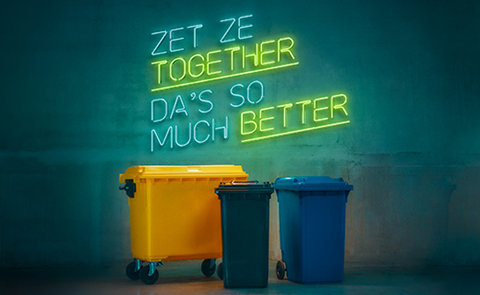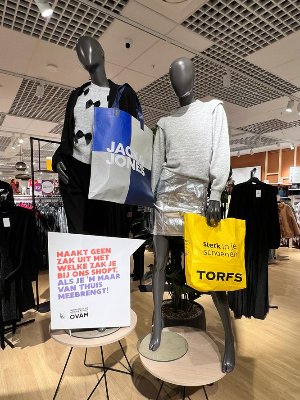
Europe is one of the world’s largest plastic consumers, with almost 26 million tonnes of plastic waste generated every year. Much of that waste is generated over the festive season, when tonnes of plastic end up recycled - or in landfill.
Belgium, however, is bucking the trend, with 80 per cent of the country's packaging waste effectively being recycled. In the northern region of Flanders, landfill disposal of household waste is banned, and incineration has significantly reduced. All in all, the region is well on track to meet its 2030 target of just 100 kg of annual residual waste per household.
To a large extent, this achievement is attributed to various policy initiatives. New policies entail extending the plastic, metal, and drinking (PMD) waste bag to include all plastic packaging waste, separating the vegetable, garden and fruit (VGF) waste, and expanding the pay-as-you-throw principle to door-to-door collection and recycling parks.
The LIFE C-MARTLIFE project accelerates and reinforces the Flemish Plastics Action Plan, developed by the Flemish government in 2020 to reach targets set by the European Strategy for Plastics in a Circular Economy. The project reduces plastic use by stimulating prevention and reuse, as well as tackling plastic litter, creating a sustainable recycling market, and encouraging the use of recycled plastic as a raw material.
The seven-year programme also expects to reduce the amount of plastic waste going into the ocean by three-quarters by 2025, with the aim of litter-free coastal communities by 2027. Also, by 2025, all packaging should be reusable, recyclable, compostable or biodegradable, and single-use event catering materials will be severely restricted.
Companies signing up to C-MARTLIFE’s Flemish green deal on packaging have already submitted pilot projects to prevent single-use packaging, while the construction and demolition industries are aiming to increase their rate of recycling by up to 70 per cent.
Other sectors including airports, clinics, retail and industrial zones, which were supposed to reduce residual waste by 15 per cent from 2013 to 2022, have been slower to respond. A playful awareness raising campaign was launched to boost workplace waste sorting and recycling.
Research suggests that consumers tend to forget to take reusable bags with them when they go Christmas shopping, so C-MARTLIFE supported a striking campaign in Flemish High Streets featuring mannequins holding used bags from competing stores. The clear message: shopping with another store’s bag is much better than shopping without one.
C-MARTLIFE has ambitions beyond Flanders. It’s being rolled out across Brussels and Wallonia, and there are plans to include the Netherlands, followed by ten more EU Member States by 2030. Education and awareness raising are key, and a group of circular ambassadors is being trained to spread the word and to share examples of successful solutions, ideas and practices.
LIFE C-MARTLIFE aligns with a number of EU policies including the Waste Framework Directive, European Strategy for Plastics in a Circular Economy; Circular Economy Action Plan 2020; Packaging and Packaging Waste Directive; Landfill Directive, Waste Incineration Directive; and the Waste Electrical and Electronic Equipment legislation.
Details
- Publication date
- 20 December 2023
- Author
- European Climate, Infrastructure and Environment Executive Agency


